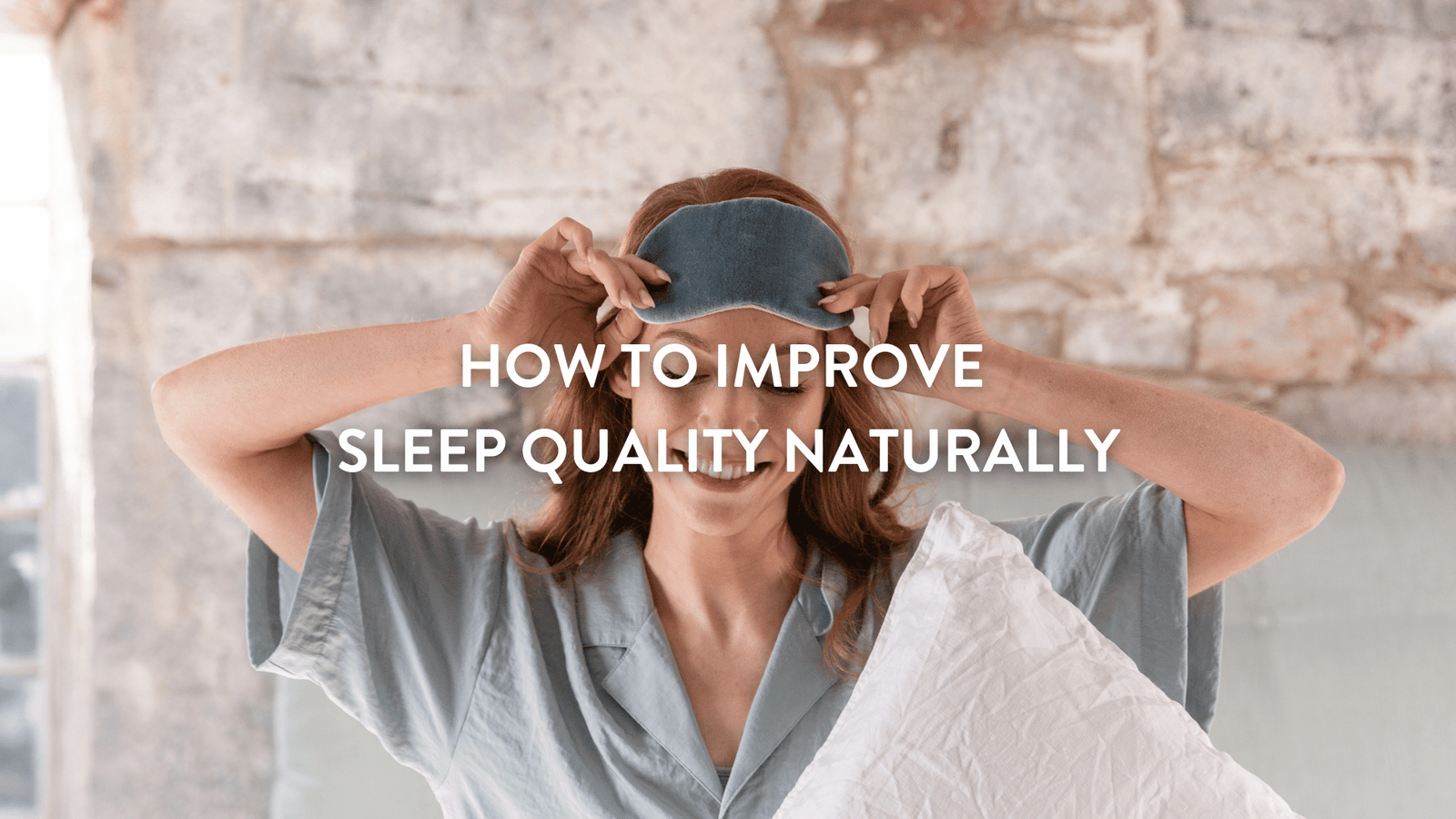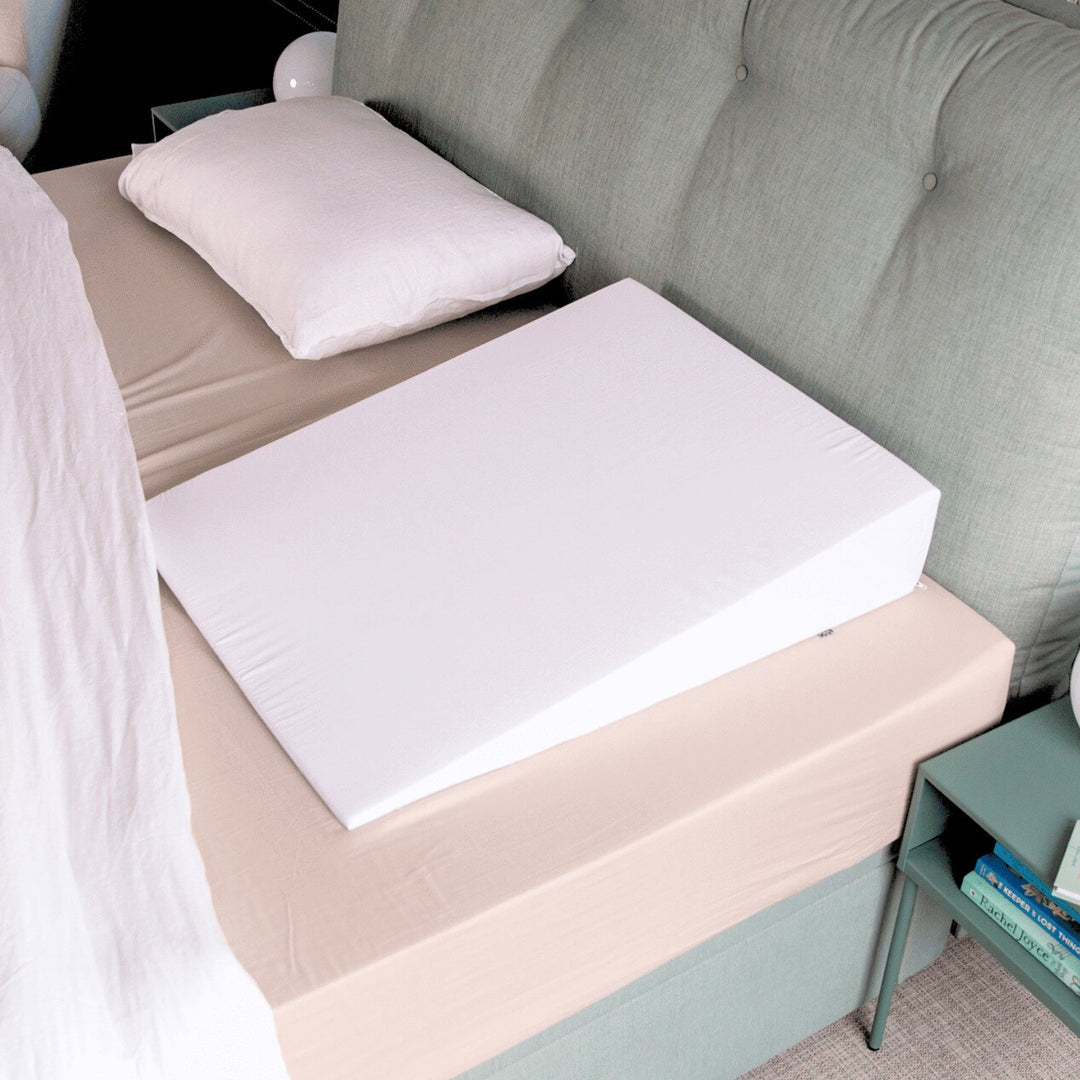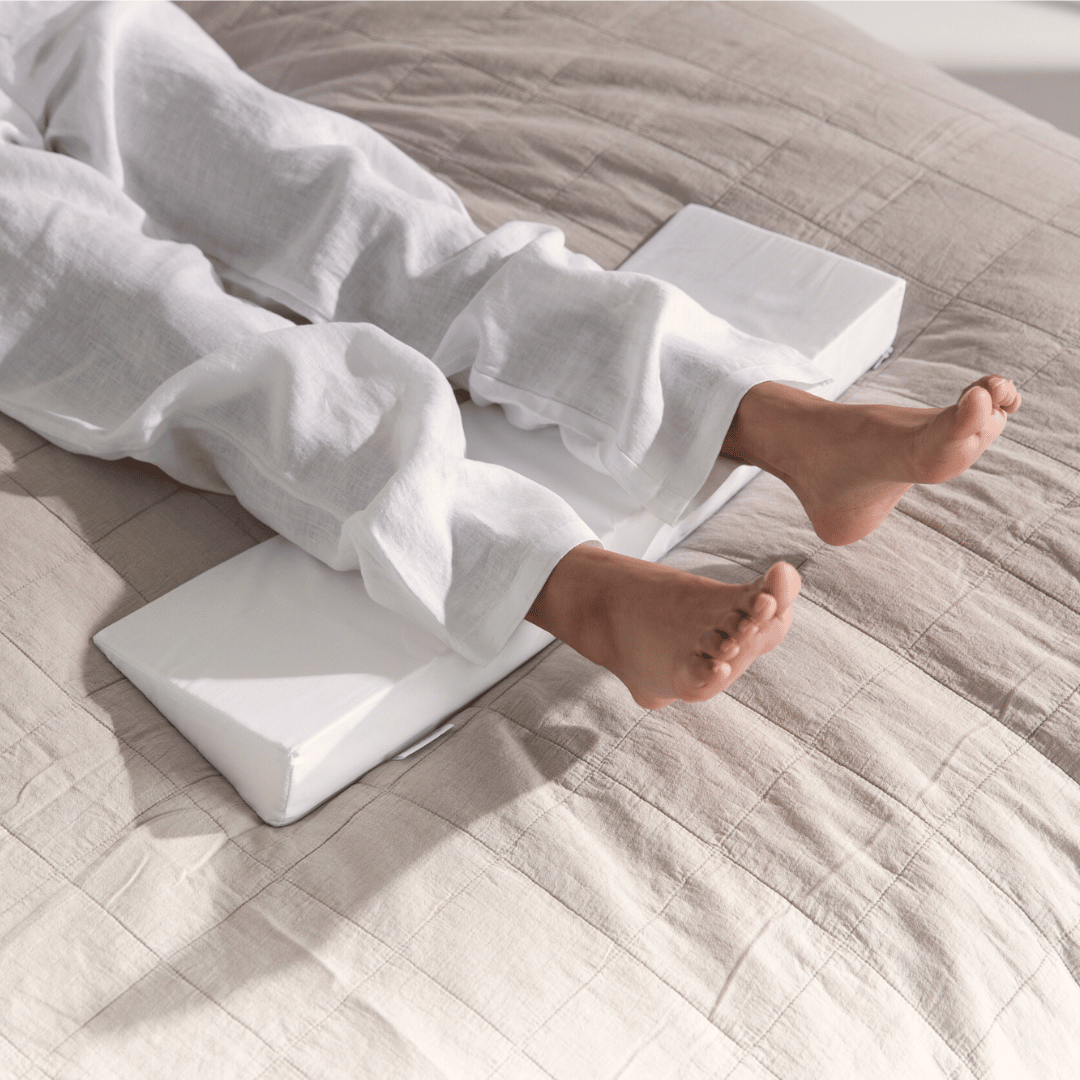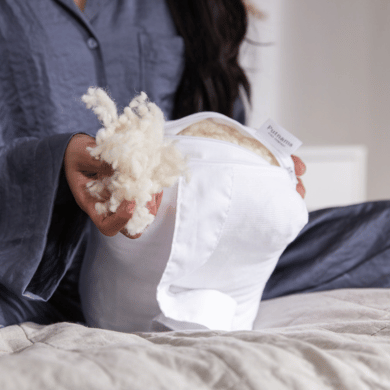
So verbessern Sie die Schlafqualität auf natürliche Weise
Schlaf ist eine der wichtigsten Säulen unserer Gesundheit, wird aber oft unterschätzt. Guter Schlaf bedeutet nicht nur, sich am nächsten Morgen energiegeladen zu fühlen; er beeinflusst auch unsere körperliche Gesundheit, unser emotionales Wohlbefinden und unsere kognitiven Fähigkeiten.
Untersuchungen von Organisationen wie dem NHS zeigen, dass dauerhaft schlechter Schlaf das Risiko für Erkrankungen wie Herzkrankheiten, Diabetes, geschwächtes Immunsystem und sogar psychische Störungen wie Angstzustände und Depressionen erhöhen kann.
Wenn Sie sich nachts hin und her wälzen, unter Müdigkeit leiden oder einfach Ihr Wohlbefinden steigern möchten, könnte die natürliche Verbesserung Ihrer Schlafqualität der Schlüssel sein.
Warum guter Schlaf wichtig ist
Vorteile für die psychische Gesundheit:
Der Zusammenhang zwischen Schlaf und psychischer Gesundheit ist tiefgreifend. Schlaf hilft, Emotionen zu verarbeiten, Stress zu bewältigen und die Stimmung zu stabilisieren.
Laut MIND kann Schlafstörungen zu Reizbarkeit, Konzentrationsschwierigkeiten und erhöhter Angst führen. Schlimmer noch: Chronischer Schlafmangel wird mit Depressionen in Verbindung gebracht. Daher ist es wichtig, für die emotionale Belastbarkeit auf guten Schlaf zu achten.
Wenn ich depressiv bin, schlafe ich so viel. Am schlimmsten waren es 18 Stunden am Tag, weil es die einzige Möglichkeit war, mit dem Denken aufzuhören und meinen Verstand davon abzuhalten, mir schreckliche Dinge zu sagen. – GEIST
Vorteile für die körperliche Gesundheit:
Aus physischer Sicht nutzt Ihr Körper den Schlaf zur Regeneration und Erholung.
Der NHS betont, wie erholsamer Schlaf die Herzgesundheit unterstützt, Entzündungen reduziert und den Stoffwechsel verbessert.
Außerdem stärkt es das Immunsystem. Wollen Sie die Wintergrippe abwehren? Dann sollten Sie Ihre Schlafgewohnheiten genau unter die Lupe nehmen.
Kognitive Funktion:
Auch für die kognitive Leistungsfähigkeit ist Schlaf unerlässlich.
Es unterstützt die Gedächtniskonsolidierung, die Problemlösungsfähigkeit und die Konzentration. Wenn Sie nicht gut schlafen, haben Sie wahrscheinlich bemerkt, wie vergesslich Sie sich fühlen oder wie schwer es Ihnen fällt, konzentriert zu bleiben.
Guter Schlaf ist eindeutig eine Notwendigkeit, kein Luxus. Die gute Nachricht: Es gibt einfache, natürliche Maßnahmen, die Ihren Schlaf verbessern können.
Siehe auch - Die Kunst einer erholsamen Nachtruhe meistern: Wie Sie in 8 einfachen Schritten besser schlafen
Praktische Tipps für eine bessere Schlafhygiene
Die Verbesserung der Schlafqualität beginnt mit einer guten Schlafhygiene.
Obwohl der Begriff klinisch klingen mag, bezieht er sich lediglich auf die Gewohnheiten und die Umgebung, die Ihnen zu besserer Erholung verhelfen.
1. Etablieren Sie eine einheitliche Schlafenszeitroutine
Eine der effektivsten Möglichkeiten, Ihren Schlaf zu verbessern, besteht darin, auch am Wochenende den gleichen Schlaf- und Wachrhythmus beizubehalten.
Diese Routine hilft, die innere Uhr Ihres Körpers, den zirkadianen Rhythmus, zu regulieren. Um die Schlafenszeit zu erleichtern, versuchen Sie beruhigende Aktivitäten wie Lesen, Meditieren oder ein warmes Bad etwa eine Stunde vor dem Schlafengehen. Vermeiden Sie stimulierende Aktivitäten wie das Scrollen auf Ihrem Handy, da dies die Melatoninproduktion aufgrund der Blaulichtemissionen stören kann.
2. Schaffen Sie eine angenehme Schlafumgebung
Ihr Schlafzimmer sollte ein Ort der Ruhe sein. Eine kühle, dunkle und ruhige Umgebung ist ideal zum Schlafen. Verdunkelungsvorhänge oder eine Augenmaske können unangenehmes Licht abhalten, während White-Noise-Geräte oder Ohrstöpsel störende Geräusche minimieren.
Ein oft übersehener Faktor für die Schlafqualität ist die Bettwäsche. Eine stützende Matratze und das richtige Kissen können den Komfort deutlich steigern und Schmerzen lindern, die Sie ständig hin und her wälzen.
Putnams bietet hochwertige Naturprodukte speziell für Schlaf und Wohlbefinden. Unsere orthopädischen Kissen bieten optimale Unterstützung für Nacken und Wirbelsäule, sorgen für eine optimale Ausrichtung und beugen Beschwerden vor. Unsere Memory Foam-Kissen passen sich Ihrer natürlichen Körperform an und bieten Komfort und Funktionalität zugleich.
Wenn Sie häufig auf der Seite schlafen, können unsere speziell angefertigten V-förmigen Seiten- und Seitenkissen für Sie von entscheidender Bedeutung sein. Diese Produkte sind nicht nur ergonomisch gestaltet, sondern auch aus hochwertigen Materialien gefertigt, was sie langlebig und zuverlässig für den Langzeitgebrauch macht.
Wenn Sie Ihr Bett mit diesen wichtigen Dingen umgestalten, können Sie den ultimativen erholsamen Rückzugsort schaffen.
3. Stress bewältigen für einen klareren Kopf
Stress ist einer der häufigsten Gründe für schlaflose Nächte.
Finden Sie Strategien, die Ihnen helfen, Stress effektiv zu bewältigen. Dazu gehören Achtsamkeitsübungen, Tagebuchschreiben oder Atemübungen, um den Geist vor dem Schlafengehen zu beruhigen. Apps wie Calm oder Headspace führen Sie durch Entspannungstechniken, wenn Sie unsicher sind, wo Sie anfangen sollen. (Siehe auch: Die 14 besten Achtsamkeits-Apps, die Ihnen helfen, in Krisen ruhig zu bleiben – The Independent)
4. Begrenzen Sie Koffein und Alkohol
Ihre abendliche Tasse Kaffee oder Ihr Glas Wein mögen harmlos erscheinen, aber Koffein und Alkohol können Ihren Schlafrhythmus stören. Beides kann den Tiefschlaf verkürzen, sodass Sie sich selbst nach vollen acht Stunden Schlaf weniger ausgeruht fühlen. Vermeiden Sie Koffein nach Mittag und beschränken Sie den Alkoholkonsum spät abends.
5. Holen Sie sich tagsüber natürliches Licht
Natürliches Licht hält Ihren zirkadianen Rhythmus im Gleichgewicht. Es signalisiert Ihrem Körper, wann es Zeit zum Aufstehen und wann zum Entspannen ist. Versuchen Sie, täglich 30 Minuten im Freien zu verbringen, am besten morgens, um Ihren Schlaf-Wach-Rhythmus zu verbessern.
Siehe auch – Wachen Sie mit Wohlbefinden auf: 12 unerwartete Vorteile von ausreichend Schlaf
Natürliche Heilmittel zur Verbesserung des Schlafs
Wenn Sie zusätzliche Unterstützung benötigen, können bestimmte natürliche Heilmittel die Schlafqualität verbessern. Dies sind einfache, nicht-invasive Optionen, die Ihre Schlafhygienepraktiken ergänzen können.
1. Kräutertees
Eine warme Tasse Kräutertee wie Kamille, Baldrianwurzel oder Lavendel vor dem Schlafengehen kann Ihnen helfen, sich zu entspannen und Ihrem Körper zu signalisieren, dass es Zeit zum Abschalten ist. Diese Tees haben eine leicht beruhigende Wirkung, die bekanntermaßen Entspannung und besseren Schlaf fördert.
2. Magnesium zur Muskelentspannung
Magnesium, das in Lebensmitteln wie Blattgemüse, Nüssen und Samen enthalten ist, unterstützt die Muskelentspannung und den Stressabbau, was den Schlaf verbessern kann. Viele Menschen finden auch Magnesiumpräparate oder -sprays hilfreich. (Siehe auch: BBC Warum alle über Magnesium reden )
3. Aromatherapie mit ätherischen Ölen
Ätherisches Lavendelöl ist ein bewährtes Mittel zur Förderung der Ruhe. Verteilen Sie es in Ihrem Schlafzimmer oder geben Sie vor dem Schlafengehen ein paar Tropfen auf Ihr Kissen. Studien deuten darauf hin, dass es nicht nur beim Einschlafen hilft, sondern auch die Qualität Ihres REM-Schlafs verbessern kann.
4. Achtsamkeitspraktiken
Achtsamkeitsbasierte Praktiken wie Meditation oder Yoga können Ihren Geist auf Ruhe vorbereiten. Laut NHS reduziert Achtsamkeit das Geplapper eines rasenden Geistes und fördert die Entspannung. Schon fünf Minuten tiefes Atmen können viel bewirken.
5. Melatonin-Ergänzungen
Melatonin ist ein körpereigenes Hormon zur Regulierung des Schlafs. Es ist zwar als Nahrungsergänzungsmittel erhältlich, sollte aber gelegentlich und unter ärztlicher Anleitung eingenommen werden, wenn natürliche Methoden allein nicht ausreichen.
Siehe auch - Enthüllung natürlicher Heilmittel gegen Schlaflosigkeit für erholsame Nächte
Süsse Träume
Die Verbesserung Ihrer Schlafqualität beginnt auf natürliche Weise mit einfachen Änderungen Ihrer täglichen Gewohnheiten und Ihrer Umgebung. Die Einbeziehung hochwertiger Produkte wie Putnams' Comfort-Reihe Die Integration in Ihren Alltag kann für ein unvergleichliches Maß an Komfort sorgen und Ihre Schlafhygiene und Ihr allgemeines Wohlbefinden unterstützen.
Die Vorteile eines besseren Schlafs sind vielfältig – von besserer Stimmung und Konzentration bis hin zu einer verbesserten körperlichen Gesundheit. Durch die Kombination kleiner Anpassungen des Lebensstils, natürlicher Heilmittel und der richtigen Schlafhilfen können Sie tiefere Ruhe finden und erholt aufwachen.
Denken Sie daran: Eine Investition in guten Schlaf ist eine Investition in sich selbst. Süße Träume!
Siehe auch – Abschalten, entspannen und die geheime Kunst des „Bettruhens“ annehmen
















Hinterlassen Sie einen Kommentar